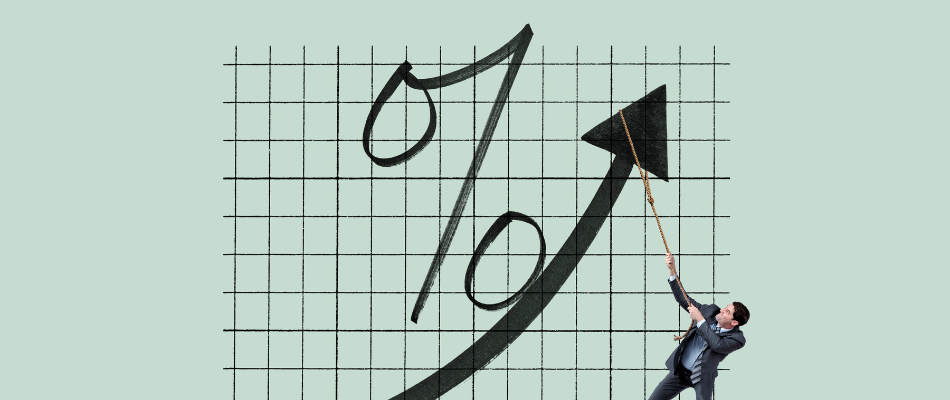Globally, interest rates are being increased as central banks are trying to bring rising inflation under control. Central banks use interest rates to control inflation since it directly affects how much disposable income consumers have. When interest rates are low, consumers don’t have to pay too much of their income away towards servicing their debt, meaning that they can spend it on other goods and services and as such prices increase, as the demand goes up for it.
On the other hand, higher interest rates cause consumers to pay more interest on their debt and as such they have less money to pay for other goods and services, causing prices to come down and with it also inflation. Some inflation in an economy is healthy as it allows for growth and innovation, but when it gets too high it can damage an economy severely as people can’t afford things that they need and as a result their quality-of-life decreases.
Since Covid, and the consequential lockdowns, governments jumped in to aid struggling consumers and economies by providing grants and lowering interest rates. This increase in money supply, along with a decrease in the capacity of manufactures, due to their employers not being able to work during lockdowns, caused prices to increase drastically over the last two years.
The war that Russia started in Ukraine was the final straw on the proverbial camel’s back as oil supply has been restricted due to the sanctions placed on Russia, a big supplier of natural oil and gas. In a desperate attempt to bring soaring prices under control, central banks are willing to increase interest rates at all cost, even if it means that the economy and consumers suffer the effects in the short term.
Now that we understand how we got to the current levels of inflation and why central banks will keep on increasing interest rates, it is important to unpack the effect interest rates have on the various markets. If we consider the bond market, we can expect that rising interest rates will have a negative effect on the bond market, especially in the short term, since higher rates mean that existing bonds’ market prices will decrease. This is observed due to the fact that investors can rather save their money in a bank, which will pay them higher interest rates for keeping their money there, which is also less risky for the investor rather than buying a bond.
Any new bonds that are being issued, while interest rates are high, will however have to offer attractive yields to ensure that the investor is fairly compensated for the risk that they are taking by not saving their money in a bank. Any investor willing to invest for a longer period, may see these higher yields as an attractive investment opportunity. When they buy a newly issued bond, that pays higher coupons due to the higher market interest rates, they can sell the bond in the market, later, at a higher market price, when market interest rates normalise in the future, as inflation gets under control.
If we now consider the equity market, we will see that rising interest rates have many impacts on the equity market as well. Firstly, it will affect future earnings growth of companies as funding capital for future projects may have to be done paying higher interest on their debt. Also consider the fact that consumers may spend less on goods and services, especially if it is non-essential, since they have less disposable income, which in turn will also negatively impact a company’s profits and earning.
Given higher yields that can be earned in the bond market, many investors are inclined to sell their equity investments and rather invest their money in bonds. This trade into bonds, along with negative market sentiment due to a weak economy, will push equity prices in the secondary market down to below their fair value. This can however create new opportunities for investors in the equity market that believe the share is trading at a price below what it is worth and thus it can be an attractive opportunity to buy those shares.
It is clear that there is no easy answer or clear formula of where an investor can invest their funds during a period of high interest rates. It is important to firstly understand what is your investment time horizon that you would want to invest your money in. When you can invest for a longer period, you can easily take advantage of some valuable opportunities that may arise in the market. If you are planning on withdrawing your investment after a year it may be better to be more conservative with your investment decision.







